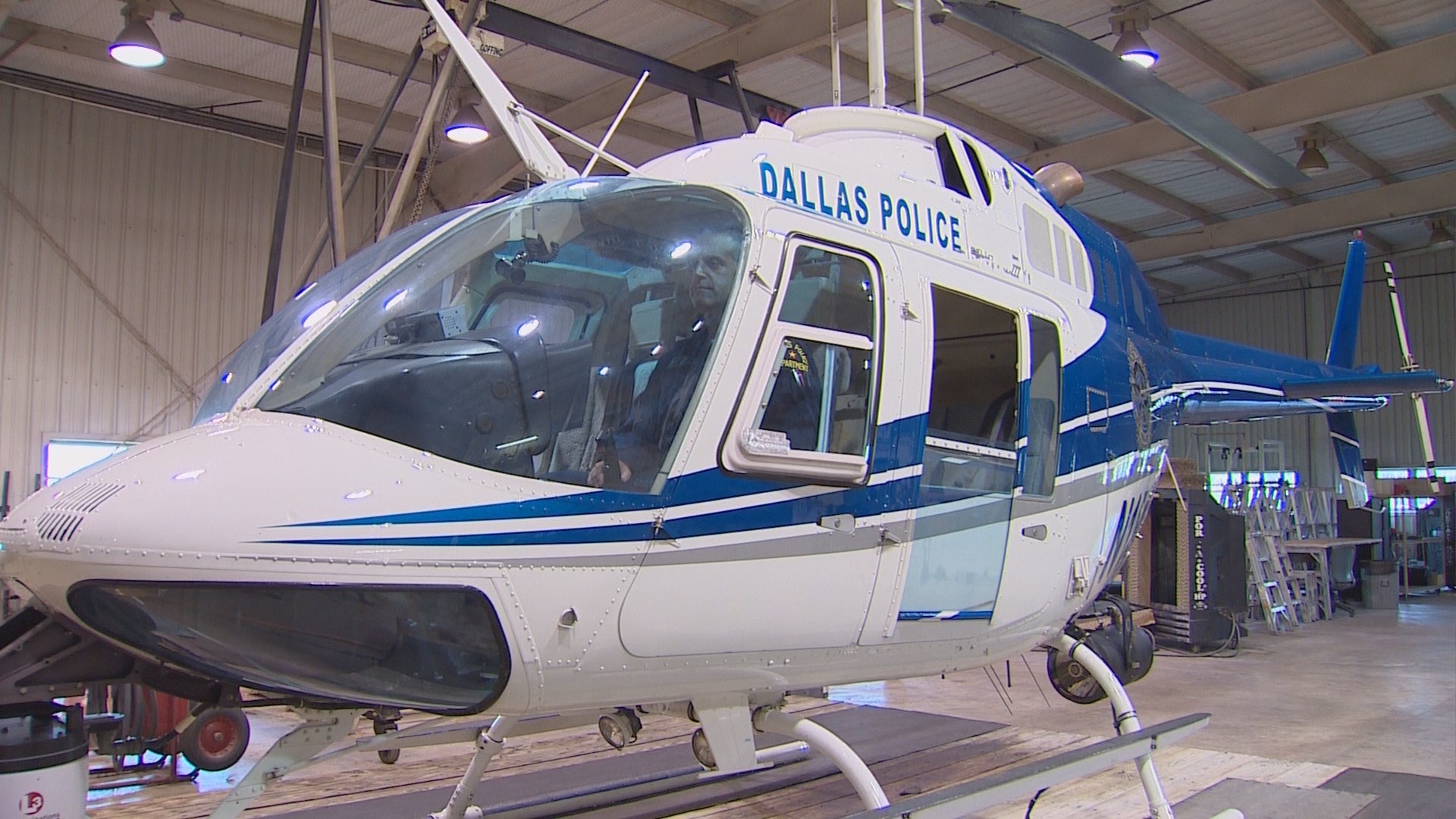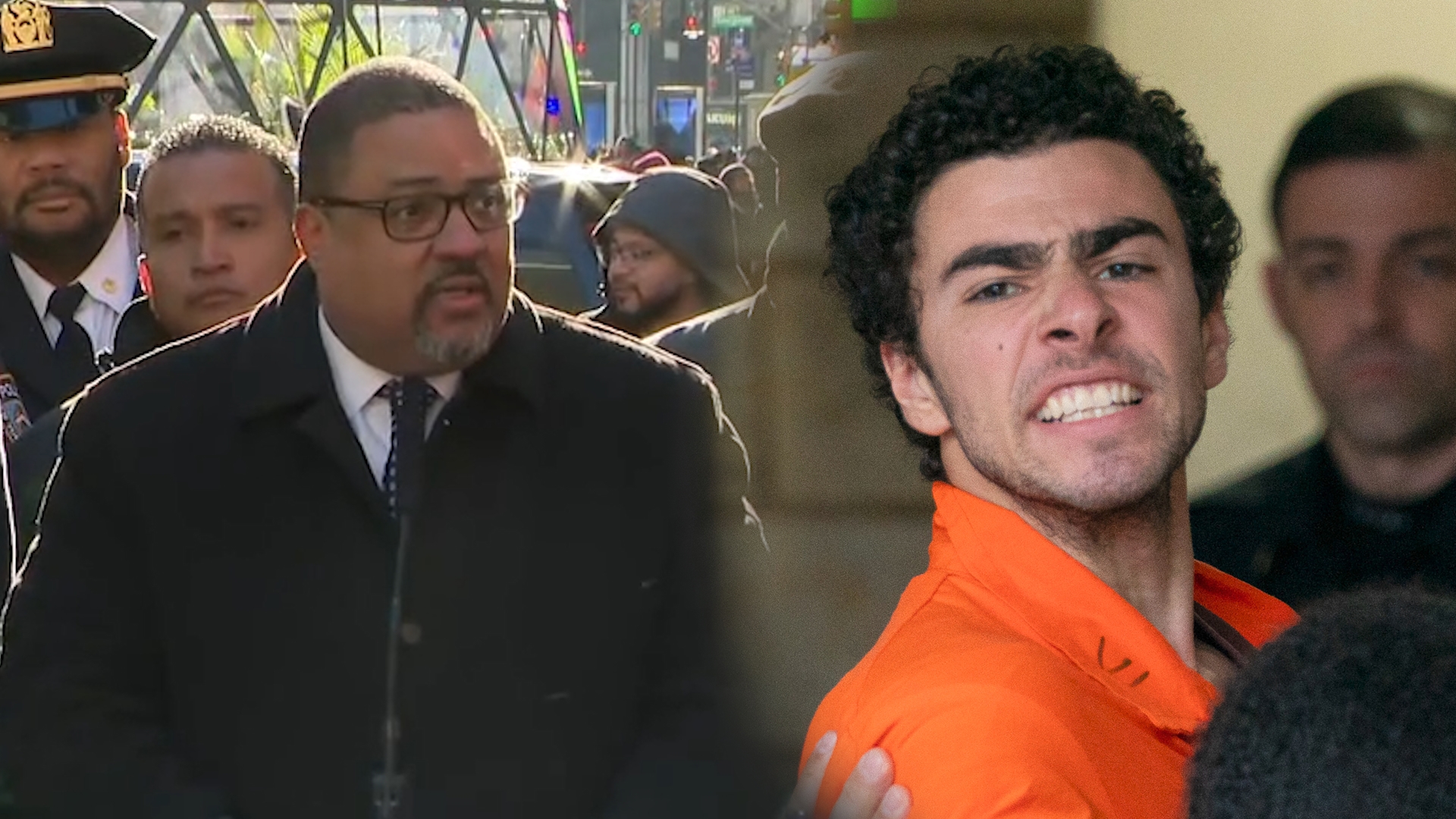DALLAS – The Dallas police helicopter unit is effectively going blind.
One camera is broken. The remaining one works sometimes — at best.
The cameras are so obsolete that parts for them aren't even manufactured anymore.
"We can only put so many Band-Aids on before we can no longer stop the bleeding," said Helicopter Unit Sgt. Todd Limerick in an email obtained by News 8 through open records.
The cost to replace the cameras and its associated navigation system exceeds $1 million, according to memos obtained by News 8. Dallas police officials say they have not identified a funding source to pay for the replacement of the cameras.
The Dallas police helicopter unit operates 24 hours a day, seven days a week in a hanger in southwest Dallas. DPD's Air One can launch and be anywhere in the city within minutes. But when and if the one remaining camera with its infrared capabilities quits working, the department will have lost an important crime-fighting tool in the sky.
Bruce White, a former chief pilot for the unit, says it'll be like going back to the "stone age."
"The major problem I saw in my 22 years at the helicopter unit is that the people in upper management do not have a firm grasp on aviation and what it can do," White said. "What the helicopter unit does cannot be put on paper, like patrol officers making arrests."
White is well familiar with how important the cameras are in the fight against crime.
"We can see where the bad guys are or where they have been and follow them without them knowing that we're watching them," White said.
The camera is mounted on the nose of the helicopter. It can rotate so it can get a good view of what's go on down below.
Over and over, DPD's camera helps officers catch bad guys. Criminals can run, but they can't hide from the camera and its infrared capabilities, which can pinpoint body heat. The infrared system is so sensitive that it can even pick up fresh footprints.
The system also has the capacity to keep officers safe.
"We could alert officers on the ground that, 'Hey, the bad guy's behind the dumpster,'" White said. "There was one instance where the bad guy actually had a gun behind the dumpster and was waiting for the officer to walk around the corner. We alerted the officer. They came around from behind. No shots were fired. And the guy was taken into custody."
The system also provides a live video link to commanders on the ground — a link commanders lost when the system cratered on the day of the Texas-OU game at Fair Park.
"It handicapped the people on the ground," said a pilot who spoke to News 8 on the condition he remain unidentified. "You lose an eye in the sky to give an overall situational process, because you can't provide a visual picture."
Typically, in situations like that, the camera system would have been used to help with traffic and crowd control, as well as ensure the department had officers in the right places at the right times.
And when it went down yet again recently, the DPD made a call for help of its own, asking the Department of Public Safety to send its helicopter to help find a robbery suspect.
"It made us feel very inferior, and it was very insulting that we could not help our own department, and that we had to rely on another agency to come help us do our own job for us," the pilot said.
Asking DPS for help isn't a fail-safe solution, either. The DPS helicopter does not operate around the clock, and responds throughout the region.
"When I was with DPD, if we called them for assistance, it would take 35-to-40 minutes before they could ever respond to us," White said, "if they could at all."
Last year, the unit spent about $50,000 on repairing both cameras. Those repairs lasted less than a year.
The pilot expects the one remaining camera to quit working any day now.
"It's day-to-day," the pilot said. "We'll go a day or two where it doesn't work or at all. It's so unreliable and unpredictable that it's just a day-to-day thing about where it will work at all."


